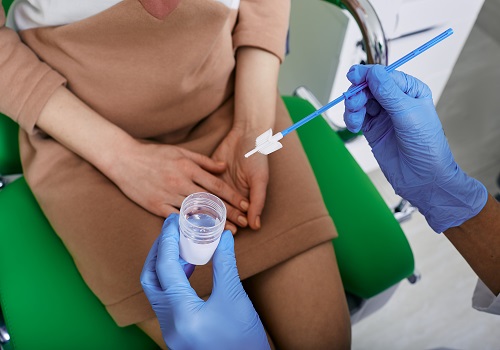Department of Health 2024/08/19 - 22:00

Staff Writer
Women aged between 20 and 50 are encouraged to have a Pap smear done regularly or at least once every three years to detect cervical cancer or cell changes that may lead to cervical cancer.
This call comes as the Gauteng Department of Health (GDoH) recorded a total of 165 603 (27.1%) cervical screenings conducted on eligible women in healthcare facilities in the province in the 2023/24 financial year, which is below the target of 40% (244 070) of all women between the ages of 20 and 50 years including women living with HIV.
Out of 165 603 women that have been screened in the year under review, 82 372 are women living with HIV aged 20 years and older, and 83 231 are non-HIV positive women between the ages of 30 – 50 years.
Symptoms do not usually appear in the early stages of cervical cancer, which is why it is important to do the Pap smear screening. Regularly doing a Pap smear assists with early identification and management of abnormal cells, and also helps find cervical cancer early, when it's more likely to be cured.
Sikhonjiwe Masilela, GDoH's Director for Maternal, Neonatal, Child, Women's Health and Nutrition said that the Department aims to achieve its 40% target or above in this financial year.
"We have accelerated health literacy on cervical cancer screening, focusing on health promotion and health education, and promoting the culture of booking system in our facilities to ensure that we have more women coming forth to test.
"We would like to encourage eligible women to visit their nearest clinic or make an appointment for cervical cancer screening as it is beneficial for their well-being and will allow early detection and treatment should they be found to have the cancer," said Masilela.
All public healthcare facilities in the province offer free cervical screening to all eligible women including those who have given birth after six (6) weeks of delivery of their baby.
To improve the uptake in cervical screening, the GDoH is also taking healthcare services to the doorstep of communities in townships, informal settlements and hostels for their convenience. This is part of efforts to improve health outcomes of communities and ensure that any life-threatening illnesses are detected ahead of time and treated appropriately.
Cervical cancer is a largely preventable disease. Some of the prevention measures include safe sex practices and dual protection (condom use) to avoid getting Human Papillomavirus.
In addition, the GDoH has since 2014 accelerated the Human Papillomavirus (HPV) vaccination campaign in for girls who are 9 years and above and are in Grade 5 in public primary and special schools to protect them against cervical cancer later in life.
Previously, the HPV vaccine was administered in two doses, however, eligible school girls are now given one dose. The campaign is expected to include learners in private schools starting from October this year during the second dose campaign.
RELATED NEWS
No related news

